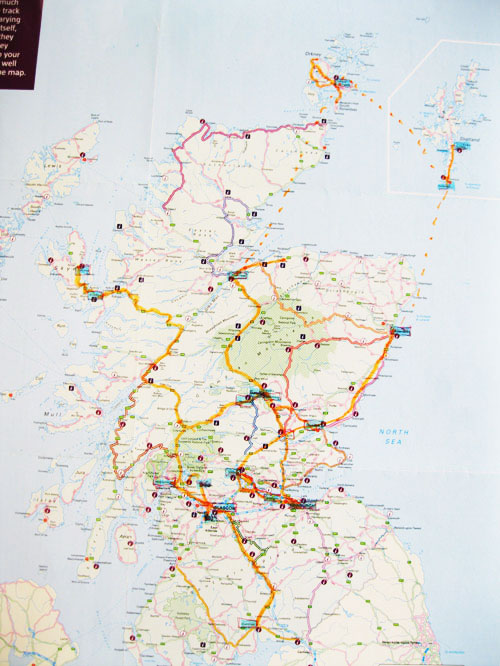 Map of Scotland with itinerary in orange and communities in blue
Map of Scotland with itinerary in orange and communities in blueFrom 20 May to 12 June 2019, I was invited to take a trip to Scotland organized by the Baha'i Council of Scotland to discuss the global challenges facing humanity. I crossed Scotland from East to West and North to South, visiting 22 communities in 22 days, making 24 presentations to over 330 students and 530 adults in schools and public meetings, visiting local leaders and academics to discuss the pressing issues facing humanity such as climate change and the loss of biodiversity, considering how individuals, communities and institutions should respond, and also examining the moral, ethical and spiritual principles which must underpin that response. The time was ripe as Scotland had just declared a climate emergency shortly before my visit.
 Map of Scotland with itinerary in orange and communities in blue
Map of Scotland with itinerary in orange and communities in blue
My itinerary included Edinburgh, Stirling, Dumfries in the South, Glasgow, Newton Mears, Balfron, Helensburgh, Broadford and Portree on the Isle of Skye in the West, Grandtully and Aberfeldy in Perthshire, Perth, Dundee, Aberdeen in the East, Lerwick and Levenwick on the Shetland Islands in the North, Kirkwall in the Orkney Islands, Inverness, Linlithgow, and Drymen. The tour concluded with meetings in Glasgow with Interfaith Scotland and with the Edinburgh Interfaith Association on the roles of faith communities in encouraging climate change action. Meetings were often co-organized by local churches, Friends of the Earth and other associations, reported in the press and on the radio, and even publicized by Extinction Rebellion.
There was little time for tourism except in the islands, and with frequent rain it was often not possible to take pictures. I tried, often from a moving car, to capture some impressions of the countryside of Scotland. My interest in islands will be self-evident in the number of pictures.
Scottish Parliament
The first day after my arrival, I presented the following “Time for Reflection” at the opening of the session of the Scottish Parliament in Edinburgh:
Climate change today represents an existential crisis, with leading scientists calling for urgent action on all fronts, and our children on strike and marching in the streets for their endangered future. The rapid loss of the planet's biodiversity is equally frightening.
How can a growing, rapidly developing, and not yet united global population, in a just manner, live in harmony with the planet and its finite resources? Our present economic system and consumer lifestyle are having devastating consequences for the environment. We cannot exceed the capacity of our planetary ecosystem without expecting dire consequences. The limited availability and inequitable distribution of resources profoundly impact social relations within and between nations in many ways, even to the point of precipitating upheaval and war.
Faced with such challenges, we must set aside self interest and partisan disputation that diminish the will to act, and strive to achieve unity of thought and action informed by the best available scientific evidence and grounded in spiritual principles.
Baha'u'llah, prophet-founder of the Baha'i Faith, warned over 100 years ago that "The civilization, so often vaunted by the learned exponents of arts and sciences, will, if allowed to overleap the bounds of moderation, bring great evil upon men."
In a globalized world, acceptance of the oneness of humankind is the first fundamental prerequisite for the reorganization and administration of the world as one country, our common home. Only strengthened global governance for peace, security and the environment can assure the national autonomy and diversity so important to all of us.
We are trustees, or stewards, of the planet's vast resources and biological diversity. We must learn to make use of the earth's natural resources, both renewable and non-renewable, in a manner that ensures sustainability and equity into the distant reaches of time. This attitude of stewardship requires that we give full consideration to the potential environmental consequences of all development activities. We must temper our actions with moderation and humility, realizing that the true value of nature cannot be expressed in economic terms. We need a deep understanding of the natural world and its role in our collective development - both material and spiritual. Therefore, we must see sustainable environmental management not as a discretionary commitment that we can weigh against other competing interests, but rather as a fundamental responsibility that we must shoulder - a pre-requisite for our spiritual development as well as our physical survival.
The video is available on the Scottish Parliament web site at https://www.scottishparliament.tv/meeting/time-for-reflection-may-21-2019
Tuesday 21 May – Stirling and Edinburgh
In the morning I met with the Provost of Stirling Council and two Bailies (members of Council) in her office for an hour. I then went by train to Edinburgh to the Scottish Parliament to present the "Time for Reflection" (above) at the opening of the session. The Scottish Minister for Environment was present and about 15 others, with other members watching from their offices.
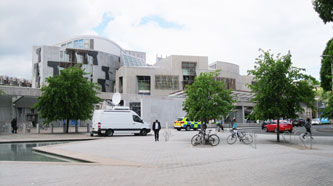 .
. 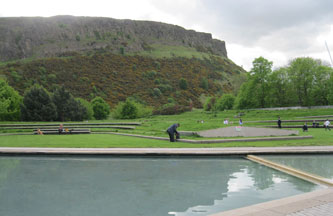
Scottish Parliament; Arthur's Seat (mountain) in Holyrood Park behind the Parliament
I returned to Stirling for an evening public meeting at the Methodist Church on the topic Meeting the Challenges of the 21st Century: You, Me and Society, organized by the Methodist Green Team, Friends of the Earth, and the Baha’is of Stirling. The room was full, with 70-80 people present. A general abstract of these presentations is below at the end of this report.
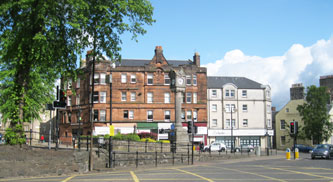 .
. 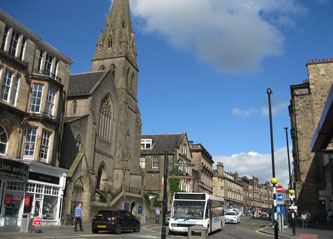 .
. 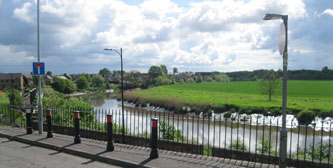
Stirling
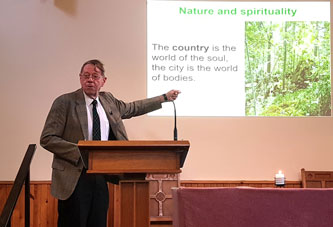 .
. 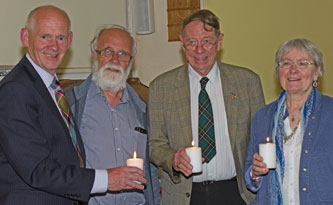 .
. 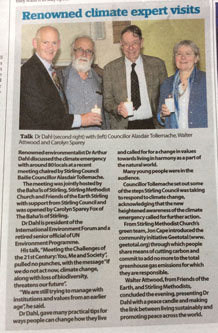
Speaking at the meeting in Stirling; presentation of peace candles; article in the Stirling Observer
Wednesday 22 May, Dumfries
I drove with a Baha'i friend to Dumfries in the far south of Scotland, where we had an evening meeting at The Stove Café in the centre of Dumfries on Meeting the Challenges of the 21st Century: You, Me and Society which attracted a general audience of 60 people with standing room only.
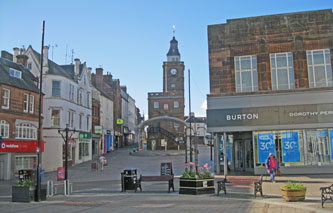 .
. 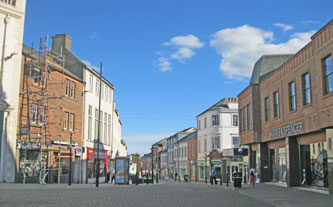 .
. 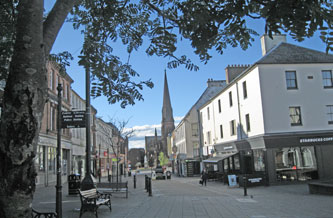
Dumfries
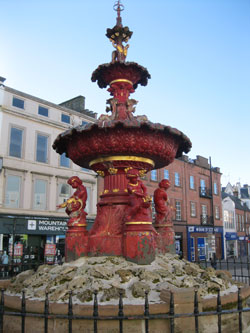 .
. 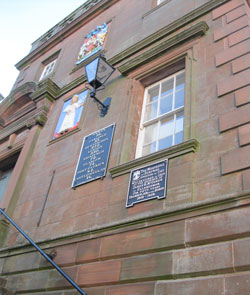 .
. 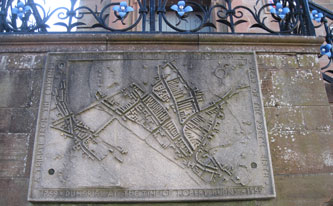
Dumfries; plaque of ancient Dumfries
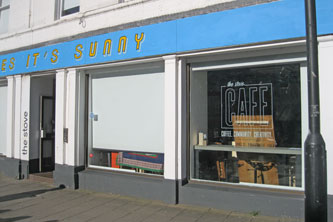 .
. 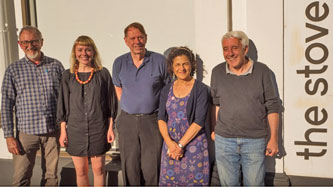
Stove Café; organizers of the meeting (Photo by Dave Kirby)
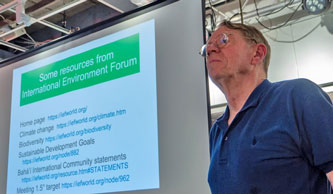 .
. 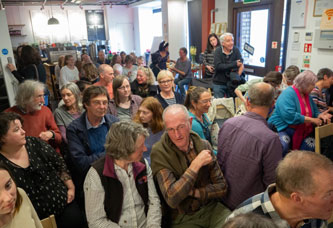
speaking at Stove Café; audience (Photos by Dave Kirby)
Thursday 23 May, Dumfries and Glasgow
In the morning I presented at Dumfries High School to a class of thirty 13 year-old enthusiastic students who want to have a safe and healthy life as adults. Over lunch we returned to the Stove Café for an informal discussion for questions and mentoring with about 10 people plus Baha’is, some returning from the previous evening. In the afternoon I met at Dumfries & Galloway College with five people involved in policies on migration and the need for integration in receiving communities from a scientific and spiritual perspective.
I then took the train to Glasgow where I was taken to the nearby town of Newton Mearns for a Neighbourhood Conversation on Meeting the Challenges of the 21st Century in the home of some Baha'is.
Friday 24 May, Balfron, Helensburgh and Glasgow
Allan Forsyth, who coordinated my trip, first drove me to Balfron High School, where I was met by the Head Teacher, had a discussion with the pupil council regarding how the school can improve its approaches to sustainability, and spoke to 2 groups of 75 pupils age 11-12 on Meeting the Development Challenges of the 21st Century.
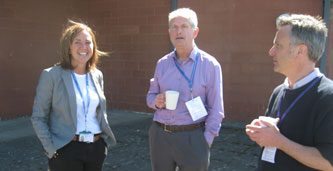 .
. 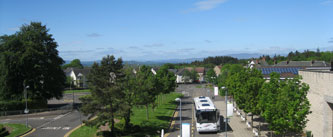 .
. 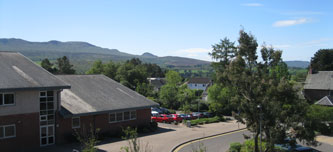
Balfron School Head Teacher, Allan Forsyth and teacher; views from Balfron School
We then went to the Forsyth’s in Helensburgh, before going to Glasgow in the evening for a public meeting at the Gartnethill Multicultural Centre, Glasgow, with about 30 people on Meeting the Challenges of the 21st Century.
Saturday 25 May Helensburgh
There was an afternoon Public Meeting at the Helensburgh and Lomond Civic Centre with 17 people on Meeting the Challenges of the 21st Century.
Sunday 26 May, Skye
Allan Forsyth drove me to Isle of Skye where there was a potluck in the evening with the Baha’is in Broadford.
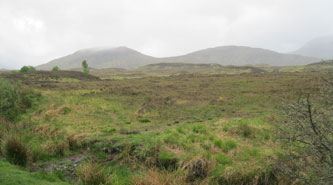 .
. 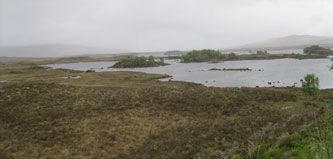 .
. 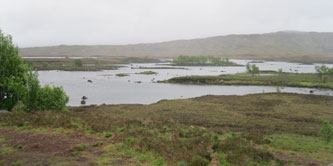
Views of western Scotland on the way to Isle of Skye
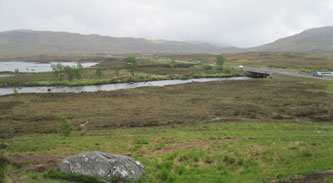 .
. 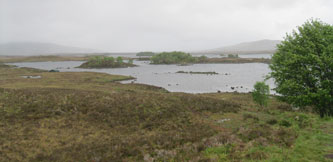 .
. 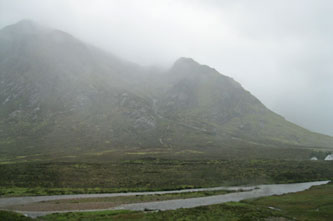
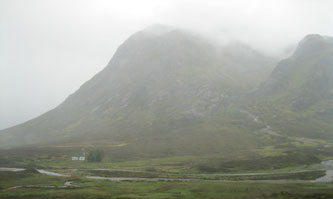 .
. 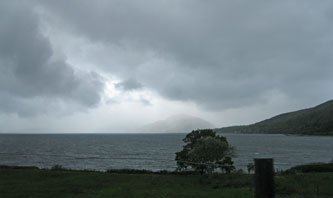 .
. 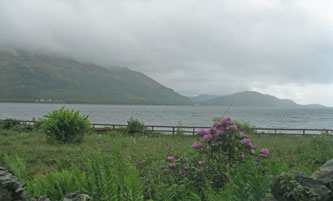
going to Skye
Monday 27 May, Broadford and Portree, Isle of Skye
In the morning we visited the Growers Hub, Broadford, for community gardens and education. We also had a press interview published in West Highland Free Press on 30 May. In the afternoon we met in the Breakish Hall in Broadford for an informal discussion. A hiker from Brazil dropped in and became very interested in the Faith. The public talk in the evening in the Tign na Sgire Village Hall, Council Chamber, Portree, was on Sustainability and Islands: The Challenges of the 21st Century.
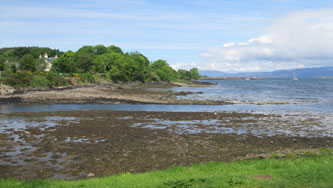 .
. 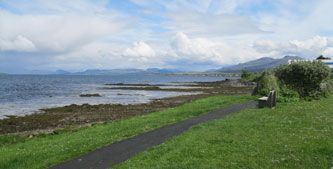 .
. 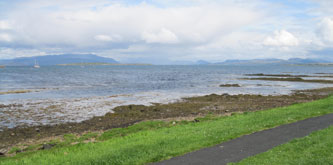
Isle of Skye
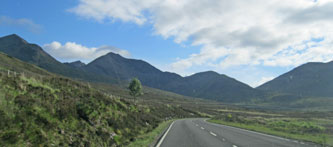 .
. 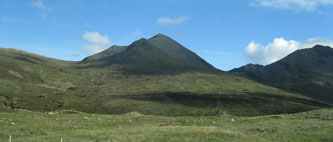 .
. 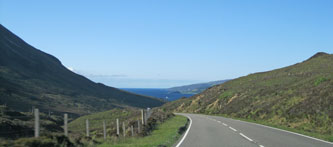
Isle of Skye
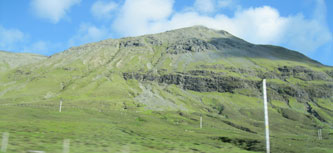 .
. 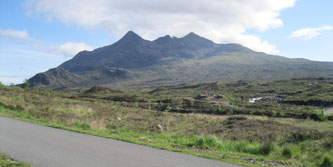 .
. 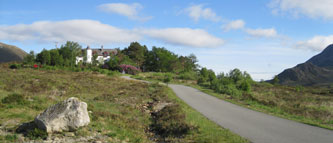
Isle of Skye
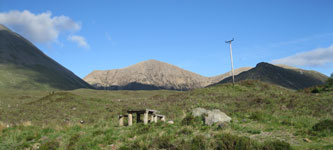 .
. 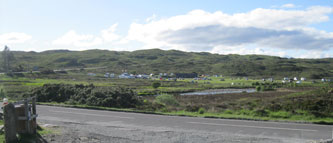 .
. 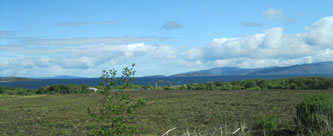
Isle of Skye
Tuesday 28 May, Grandtully, Perthshire
I was driven from the Isle of Skye across the bridge back to the mainland and then to Spean Bridge, where I was picked up to go to Grandtully across the Grampian Mountains.
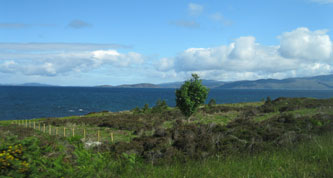 .
.  .
. 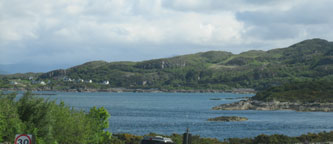
Isle of Skye; crossing the bridge back to the mainland
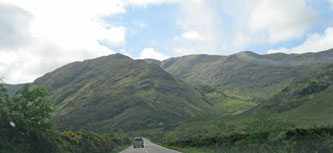 .
. 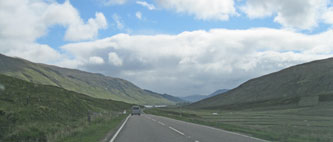 .
. 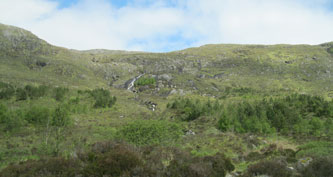
Crossing the Grampian Mountains
I spoke to the Grandtully Primary school (Eco school) ages 6-12, where the questions were 1) what can be done, or is being done about plastics in the ocean, 2) ideas about "rewilding". Afterwards the daughter of the family I was staying with wrote a poem about my visit, and then took me walking through woods carpeted with bluebells.
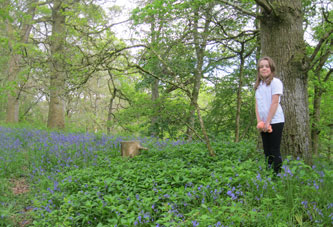 .
. 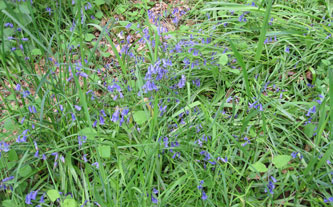 .
. 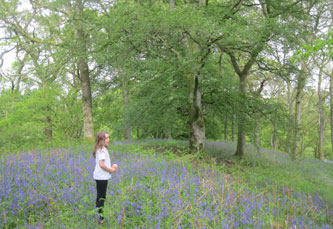
Woods carpeted with bluebells in Grandtully
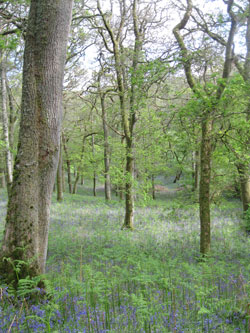 .
. 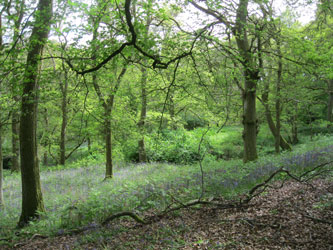 .
. 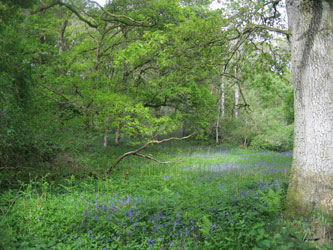
The evening meeting at the Ballinluig Village Hall, Perthshire, for local environmental groups was on Meeting the Environmental Challenges of the 21st Century: You, Me and Society.
My interview with Radio Shetland was broadcast on Tuesday evening 28th May, with my coming visit mentioned immediately in the introduction and from 14:23-19:11 minutes during the programme. https://www.mixcloud.com/BBCShetland/good-evening-shetland-tuesday-28th-may/?fbclid=IwAR3VXPldLdj05RXxqzFrdpNct9vdhlSCBN5I8f-UpMdoFceN6CJXNLhn5ZQ
Wednesday 29 May, Perth and Dundee
In the morning we went to Perth for a meeting with Martin Price at the University of Highlands and Islands, the UNESCO Chair in Mountain Sustainable Development.
We then had lunch with Mike Robinson, Executive Director of the Royal Scottish Geographical Society, Perth. I was then taken to Kilgraston School, a girls school, where I spoke to sixty 2nd year pupils on Meeting the Challenges of the 21st Century focussing on global governance. We then continued on to Dundee. In the evening I spoke at the Dundee University Chaplaincy (organized by the Baha’is and Friends of the Earth) to 55 people on Meeting the Challenges of the 21st Century, before returning to Grandtully. Thursday was a day of rest in Grandtully, with a visit in the rain to Glen Lyon (beautiful but no pictures possible).
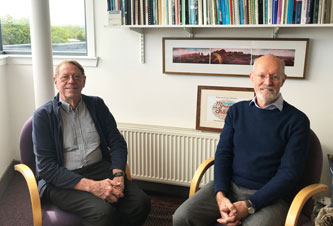 .
. 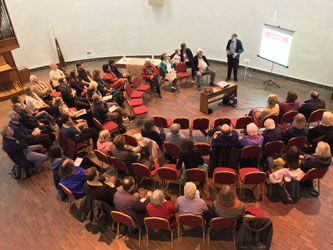 .
. 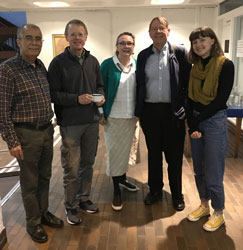
Meeting with Martin Price; Dundee University Chaplaincy; Baha'i and FoE organizers
Friday 31 May, Aberfeldy - Aberdeen
In the morning I spoke to about 20 students at Aberfeldy High School.
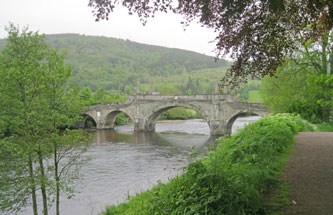 .
. 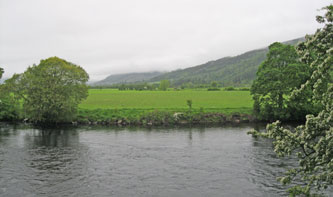 .
. 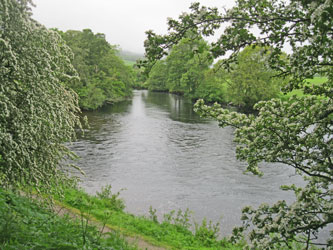
River Tay at Aberfeldy
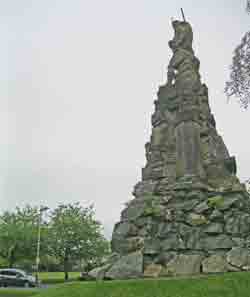 .
. 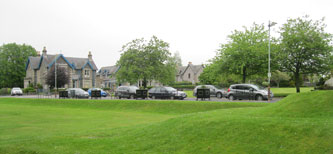 .
. 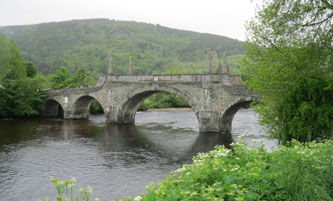
Memorial to Black Watch, Aberfeldy; Wade's Bridge 1733
I was then driven to Perth to catch the train to Aberdeen, where I spoke in the evening at Aberdeen University on Meeting the Challenges of the 21st Century with about 50 in the audience.
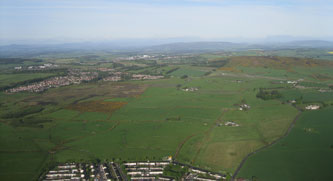 .
. 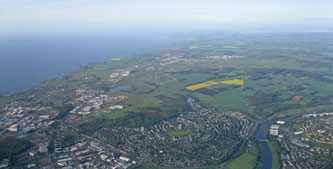
near Aberdeen from the air
Saturday 1 June, Lerwick, Shetland Islands
I took the early flight Aberdeen-Sumburgh in the Shetland Islands in the far north of Scotland. We visited the south coast with its cliffs of nesting sea birds and lighthouse in the fog.
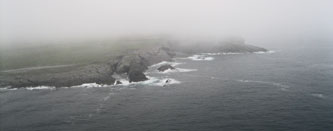 .
. 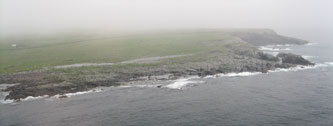
South coast of Shetland Islands
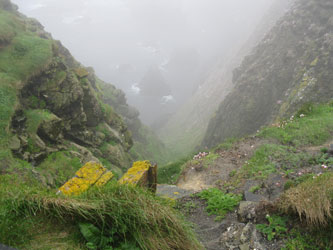 .
. 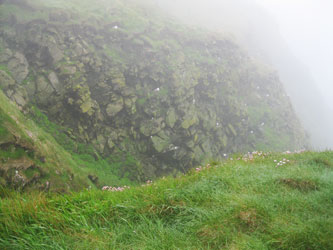 .
. 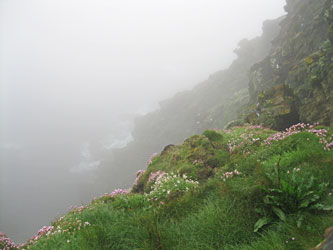
Sea cliffs of Shetland Islands in the fog
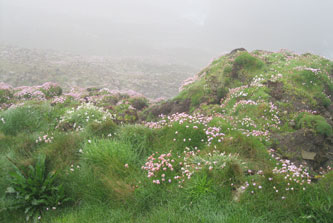 .
. 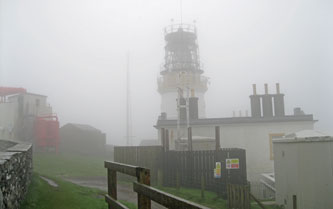 .
. 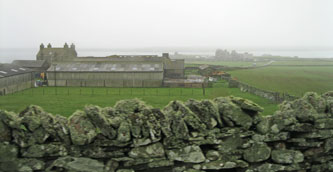
Cliff flowers; Lighthouse; farm
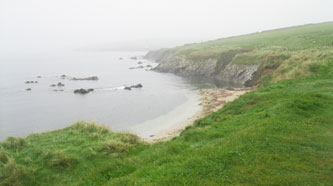 .
. 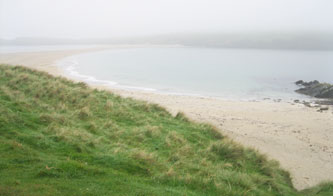 .
. 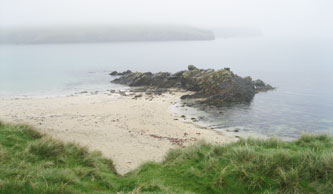
Shetland Islands coast
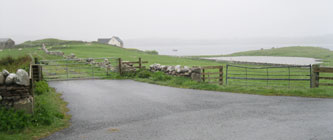 .
. 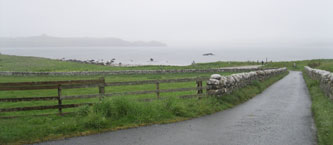
Shetland Islands
I stayed in the beautiful home of a local Baha'i architect right on the coast near Lerwick. The sea was never very far away.
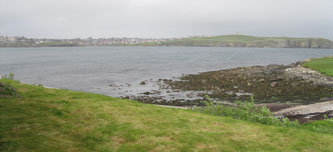 .
. 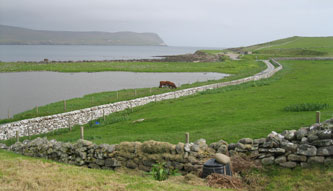 .
. 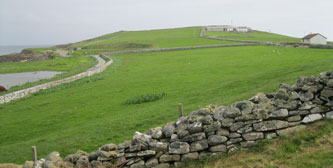
view from the house where I was staying
In the evening of 1 June there was a public meeting in the beautiful Lerwick Town Hall with about 55 people on Sustainability and Islands: The Challenges of the 21st Century. There were Facebook postings before and after by Extinction Rebellion Shetland, including a photograph. A video of the presentation is at https://www.youtube.com/watch?v=hO4ZqJOy-Ro
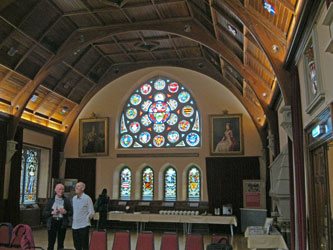 .
. 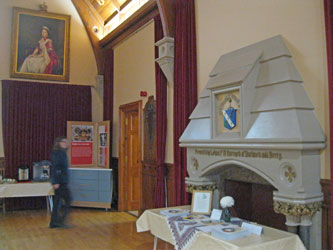 .
. 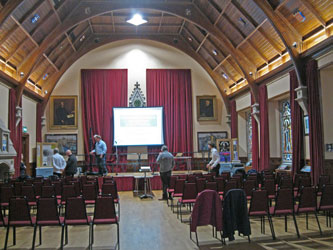
Lerwick Town Hall
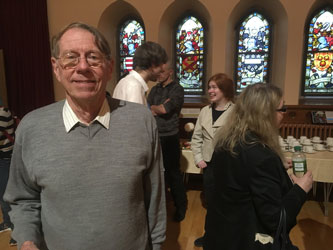 .
. 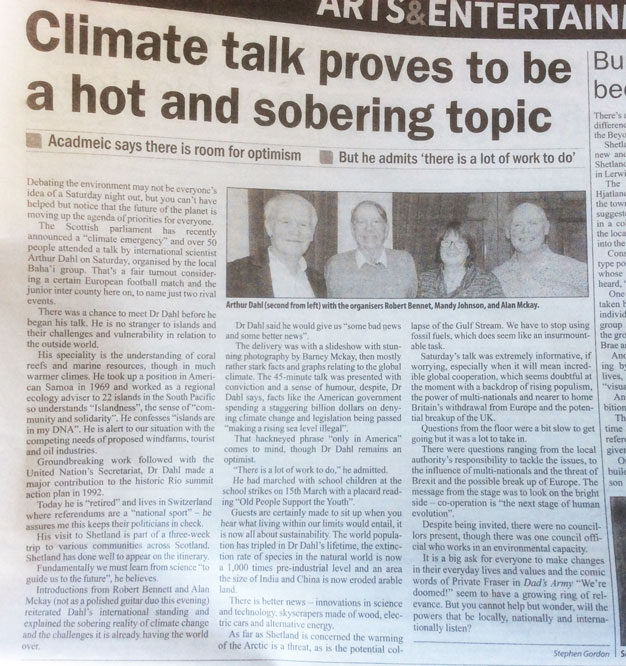
At Lerwick Town Hall; article in the Shetland Times
Sunday 2 June, Lerwick
After a visit around the island, in the evening I spoke on Global Governance for the 21st Century for 19 people.
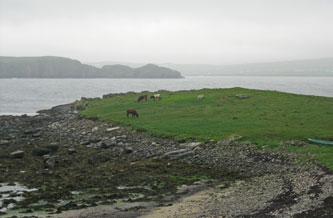 .
. 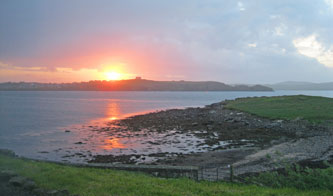
Lerwick; sunrise at 4 am over Lerwick
Monday 3 June, Lerwick-Levenwick
In the morning I spoke at the Lerwick Bell's Brae primary school (about forty 11-12 year olds) on climate change, the environment and my life as a scientist. We then had lunch and visited the NAFC Marine Centre in Scalloway, where the director's son had attended my talk. The Baha'is took me on a visit to the central Shetlands in the afternoon, before other Baha'is drove me to Levenwick in the south of the island for an evening fireside.
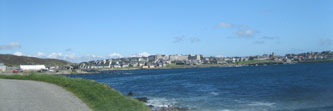 .
. 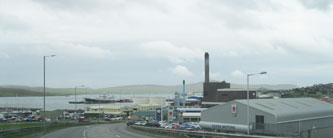 .
. 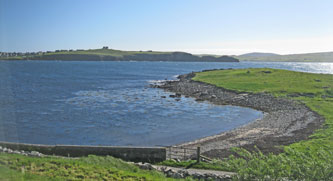
Lerwick
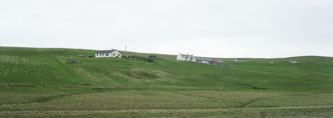 .
. 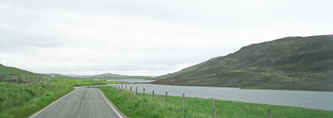 .
. 
Central Shetland mainland; wind turbines in the distance
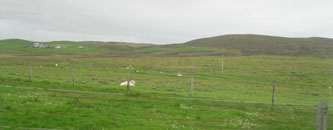 .
. 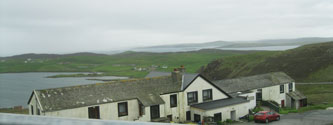 .
. 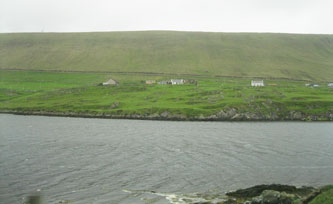
central Shetland
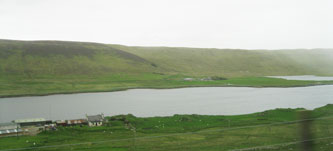 .
. 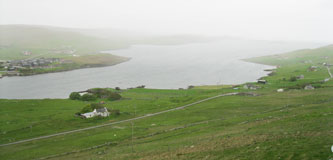 .
. 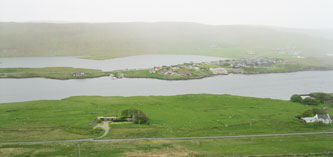
central Shetland
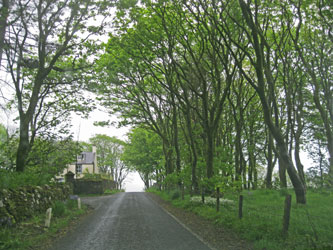 .
. 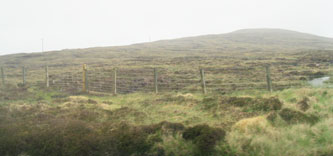
The only trees I saw on Shetland in a sheltered valley; central Shetland mainland
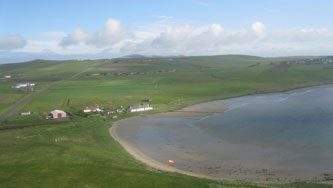 .
. 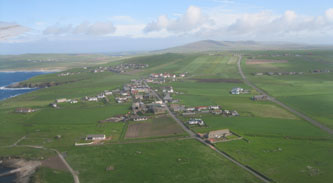 .
. 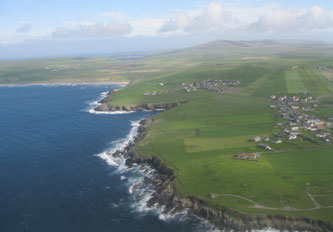
Shetland Islands from the air
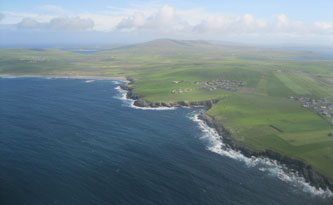 .
. 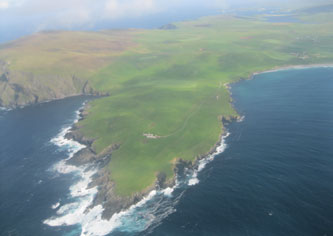 .
. 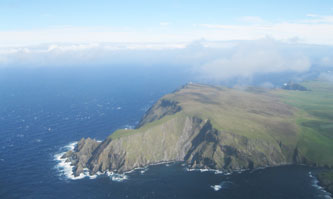
Shetland Islands from the air
Tuesday, 4 June, Orkney Islands
Another early flight Sumburgh-Kirkwall allowed some good views of the Orkney archipelago as we flew south. With my deep interest in islands, I was happy to discover some new ones.
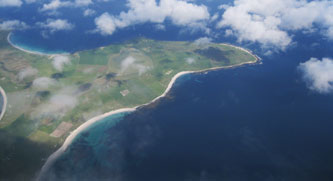 .
. 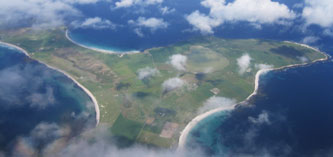 .
. 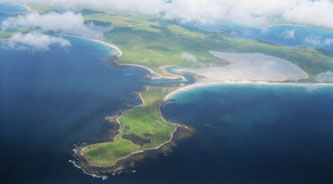
Orkney Islands from the air
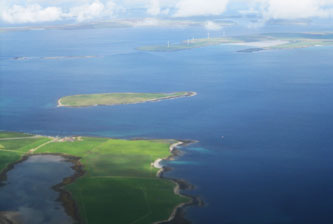 .
. 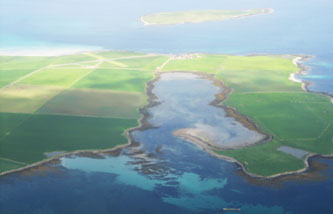 .
. 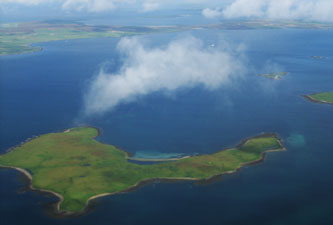
Orkney Islands from the air
 .
. 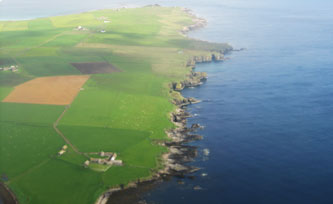 .
. 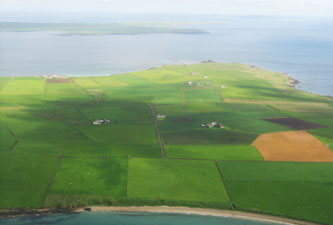
Orkney Islands from the air
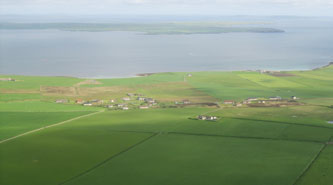 .
. 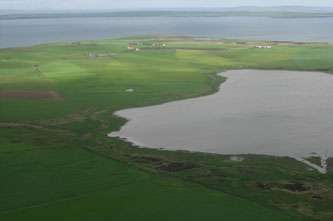 .
. 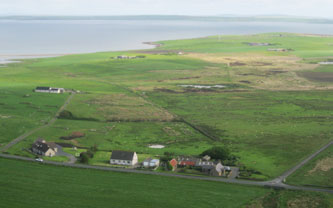
Orkney Islands from the air
I was met and accompanied to Kirkwall Grammar School for a class of eleven 15-16 year olds just back from exams and starting geography, where I adapted my presentation on Meeting the Challenges of the 21st Century.
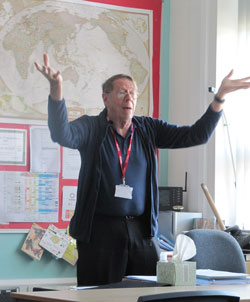 .
. 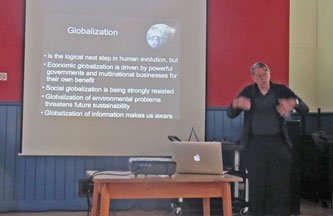
Speaking at Kirkwall Grammar School; speaking at St Magnus Centre, Kirkwall
We had a community meal at the Orkney Baha’i Centre before the evening meeting at St. Magnus Centre, Kirkwall, with 30 people including a journalist and representatives of Extinction Rebellion Orkney, on Sustainability for Island communities.
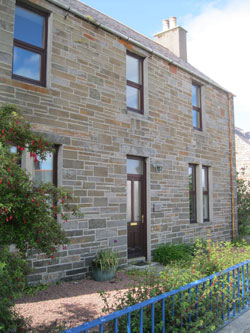 .
. 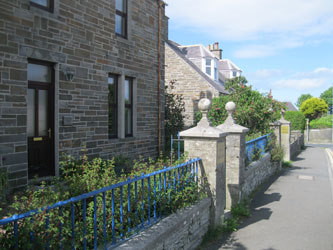
Kirkwall Baha'i Centre
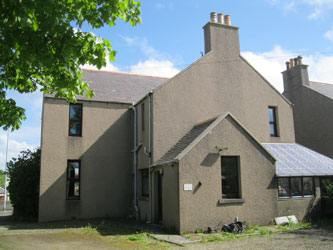 .
. 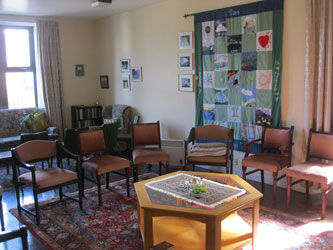
Wednesday 5 June, Orkney Islands
A local friend took me on a tour of the west mainland to see St. Magnus Cathedral, Kirkwall, standing stones of Stenness, the ring of Brodgar, the amazingly preserved Scara Brae neolithic village, a nearby aristocratic residence Skaill House, Brough Head and Brough of Birsay lighthouse on the north coast, Stromness (Scapa Flow) and Ness Battery where the British fleet was based in the First and Second World Wars, and a Viking Chambered Cairn (tomb). The evening meeting was again at St. Magnus Centre, Kirkwall, with 10 people including a journalist from The Orkney News on Meeting the Challenges of the 21st Century.
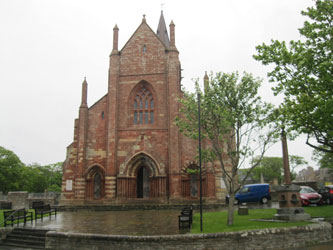 .
. 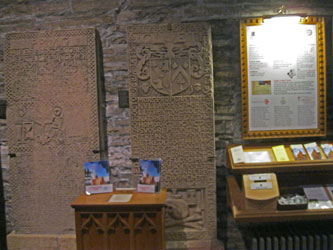 .
. 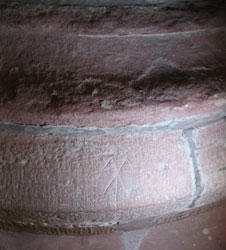
St. Magnus Cathedral, Kirkwall, founded in 1137 by the Viking, Earl Rognvald; stone with a mason's mark
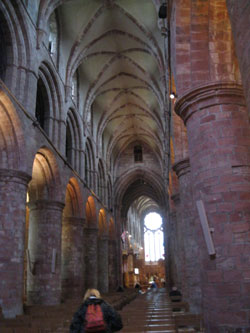 .
. 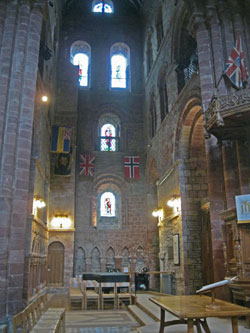 .
. 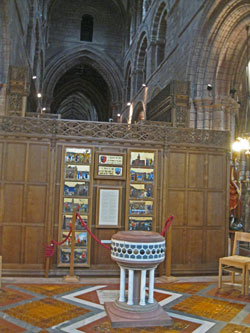
St. Magnus Cathedral, Kirkwall
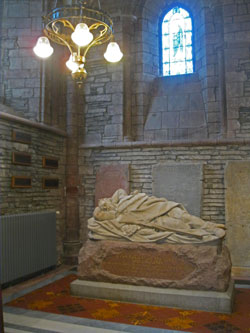 .
. 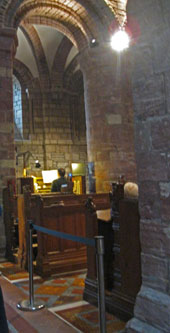 .
. 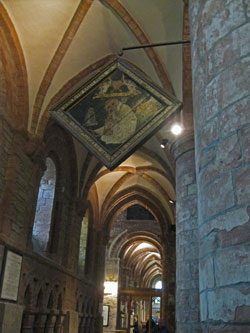
Memorial to Arctic explorer John Rae; organist; St. Magnus Cathedral, Kirkwall
The neolithic standing stones and rings were transported from different sites some distance away. Research suggests they may have been slid on a bed of kelp.
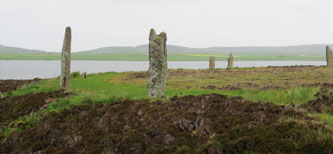 .
. 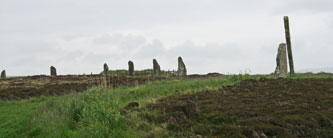 .
. 
Ring of Brodgar, Orkney; Standing stones of Stenness
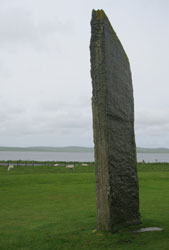
Standing stones of Stenness
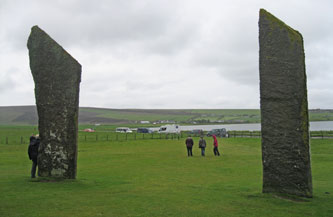 .
. 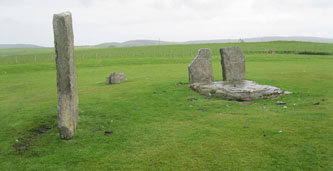 .
. 
Standing stones of Stenness
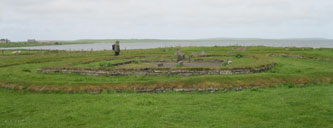 .
. 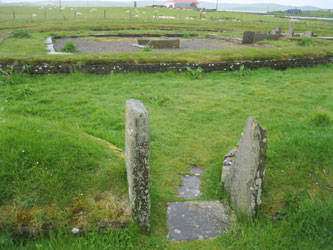 .
. 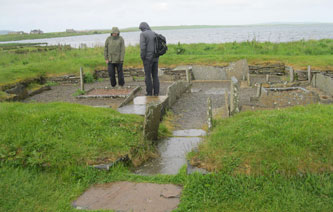
Neolithic house, probably of a shaman
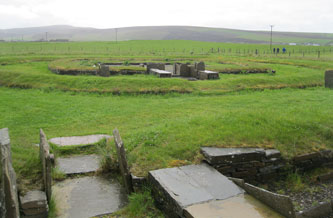 .
. 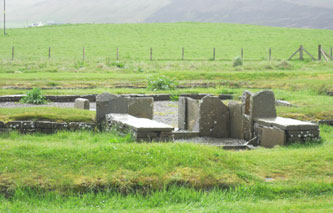 .
. 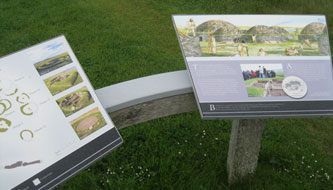
A whole neolithic village at Scara Brae was recently uncovered by high waves on the eroding shoreline and largely restored.
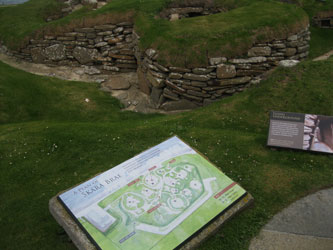 .
. 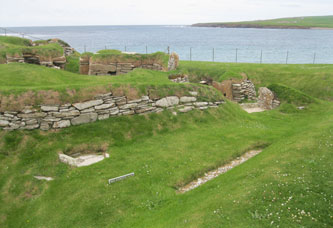 .
. 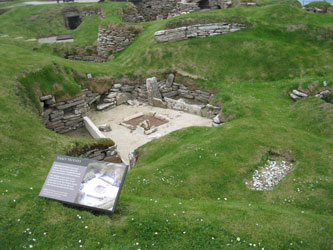
Scara Brae neolithic village
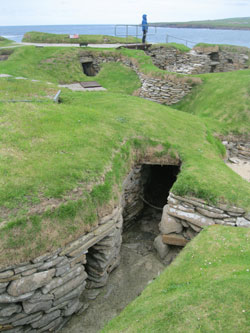 .
. 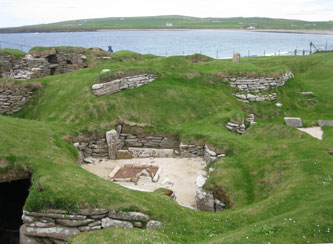 .
. 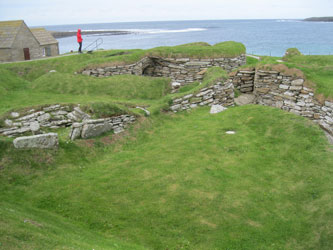
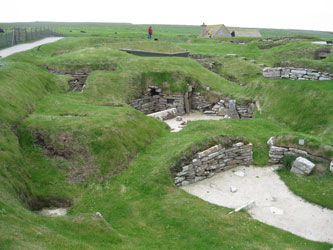 .
. 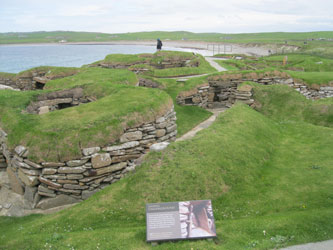 .
. 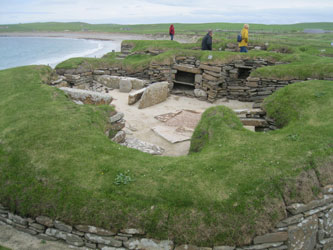
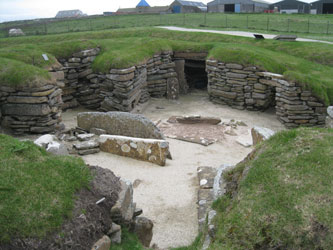 .
. 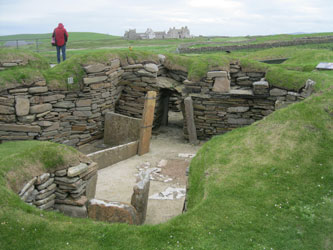 .
. 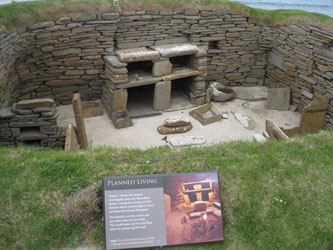
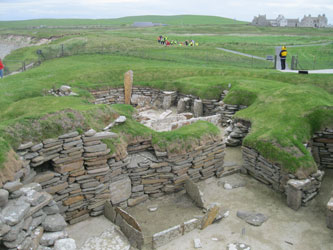 .
. 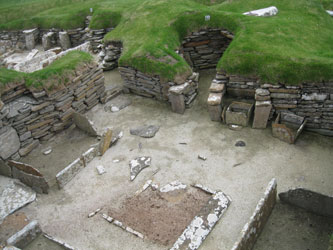
Scara Brae neolithic village
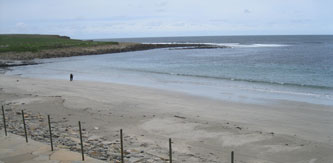 .
. 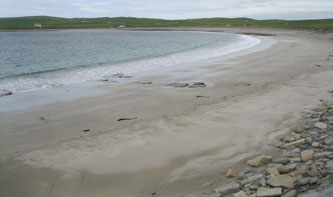
Beach in front of Scara Brae
Behind Scara Brae is the home of the aristocratic family that owns the land, Skaill House on the Breckness Estate, now opened to the public. The contrast with the neolithic village is striking.
 .
. 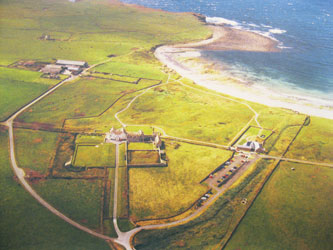
Skaill House from Scara Brae; old aerial view
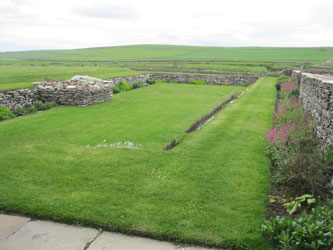 .
. 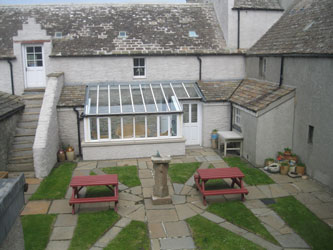
Skaill House garden; inner courtyard
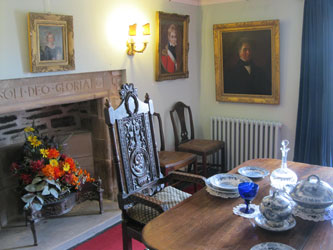 .
. 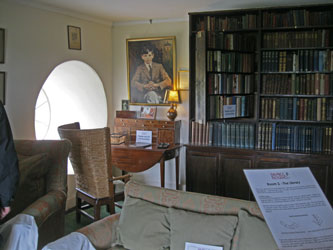 .
. 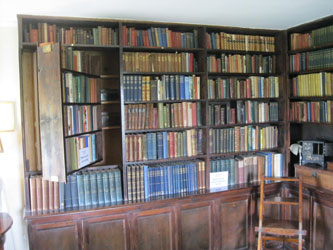
Skaill House interiors
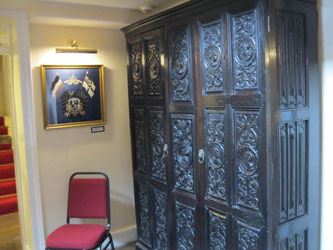 .
. 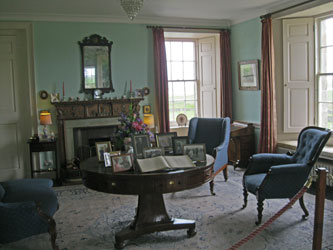 .
. 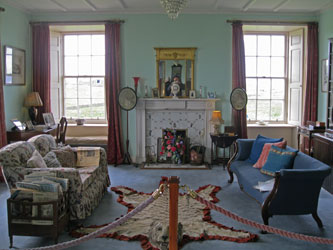
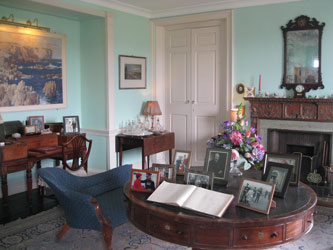 .
.  .
. 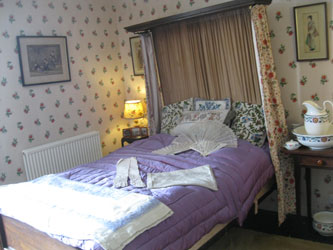
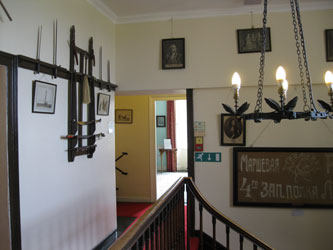 .
. 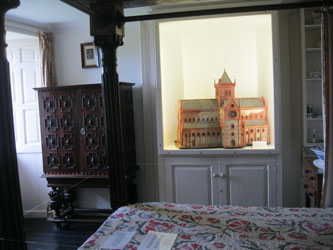 .
. 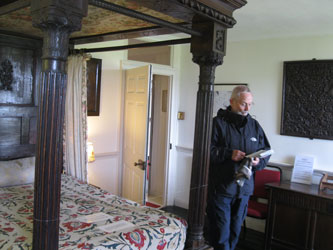
Skaill House interiors, my guide David McLaughlin
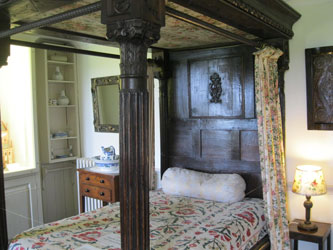 .
. 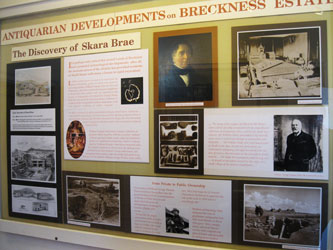 .
. 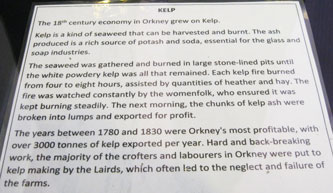
Skaill House; wealth from kelp
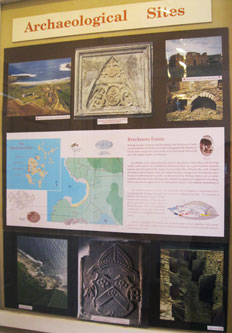 .
.  .
. 
Archaeology; countryside north of Scara Brae
We then went north to Brough Head and Brough of Birsay lighthouse on the north coast.
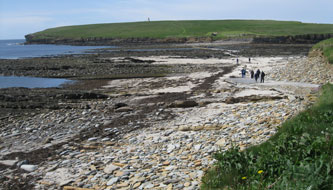 .
. 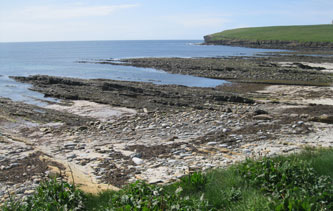 .
. 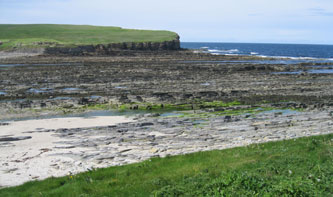
Brough Head
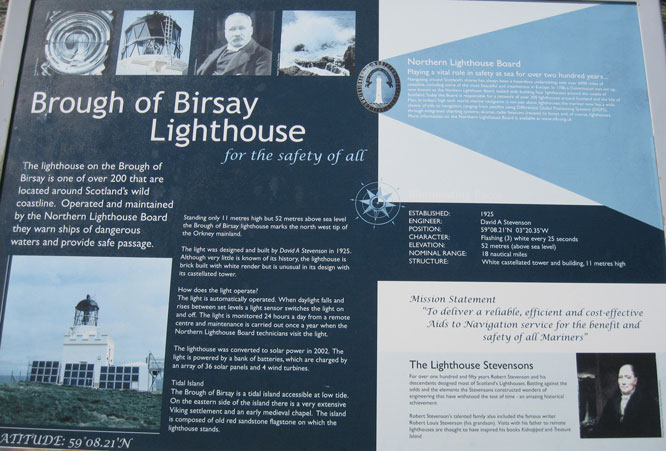
 .
. 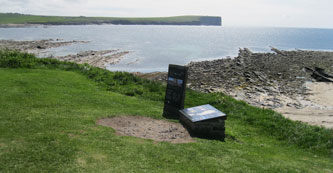 .
. 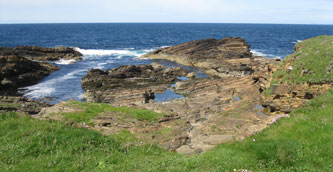
coast beyond Brough Head
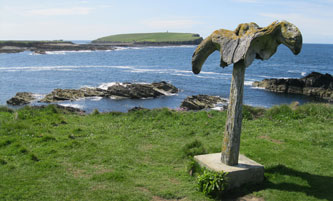 .
. 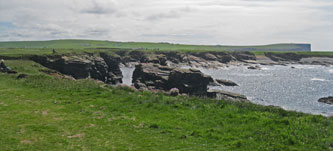
We then returned south to Stromness and one of the main entrances to Scapa Flow where the Royal Navy fleet was based in the First World War.
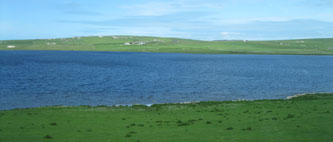 .
. 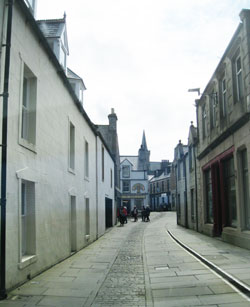 .
. 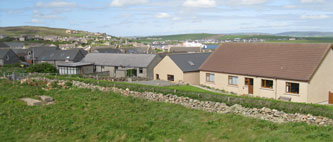
Scapa Flow; Stromness
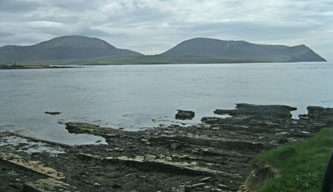 .
. 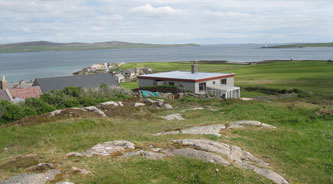 .
. 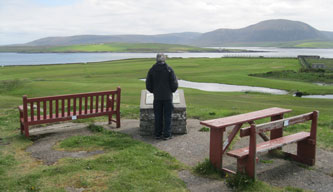
Gun viewpoint of Scapa Flow, Stromness
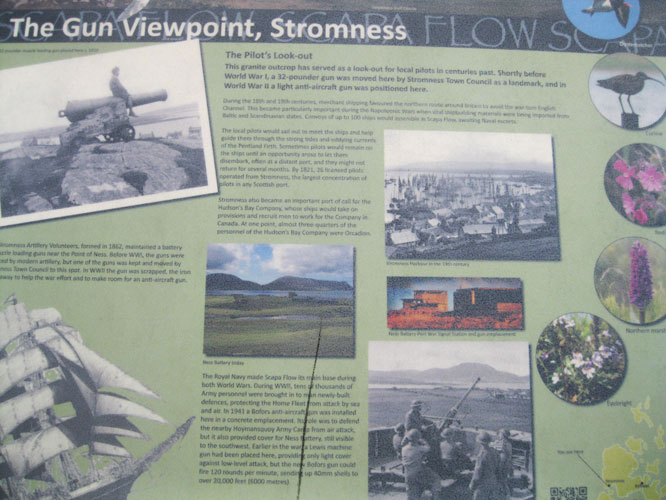 Gun viewpoint, Stromness
Gun viewpoint, Stromness
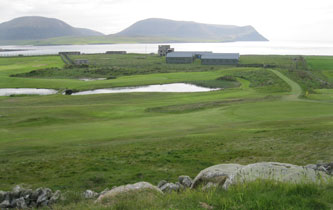 .
. 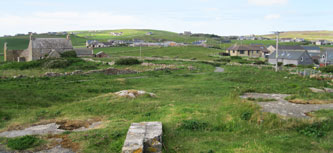
Scapa Flow and golf course; view of Stromness
On the way back to Kirkwall, we stopped to visit a Viking chambered cairn or collective tomb
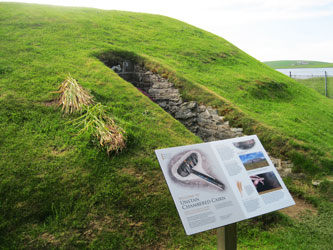 .
. 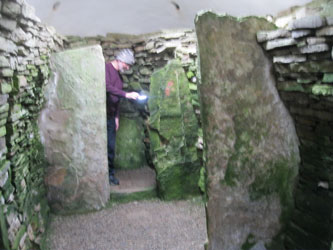 .
. 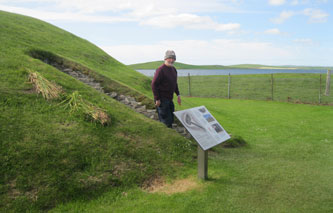
Viking chambered cairn
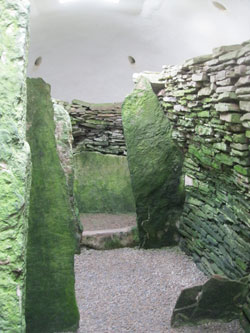 .
. 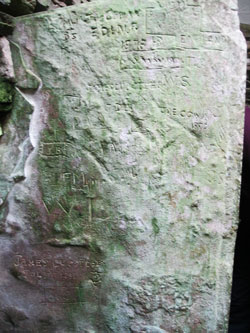 .
. 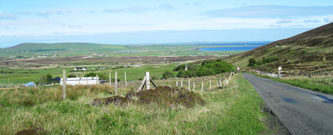
Viking chambered cairn; 19th century graffiti; returning to Kirkwall
Thursday 6 June, Orkney Islands and Inverness
My last day on Orkney started with a Rotary lunch, then a visit to the Italian Chapel built by WWII prisoners, the Churchill Barrier to Scapa Flow build after a German submarine sneaked in and sank the HMS Royal Oak, and then to the airport.
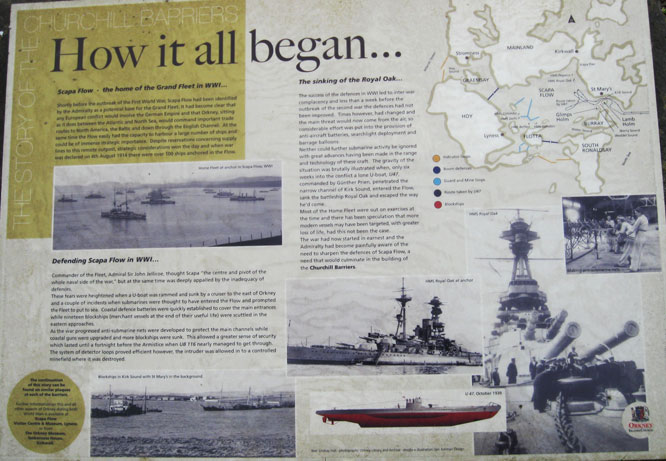
 .
. 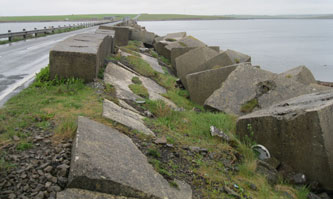
Churchill Barrier
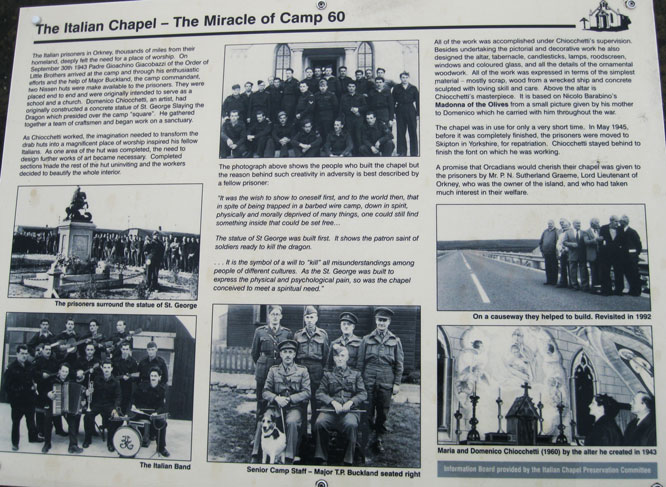
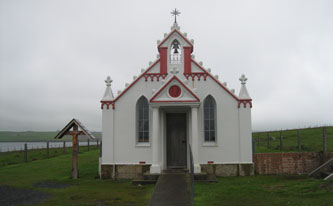 .
. 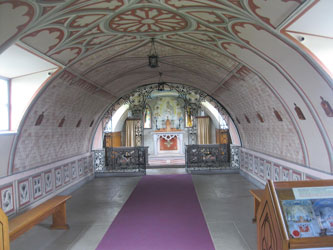 .
. 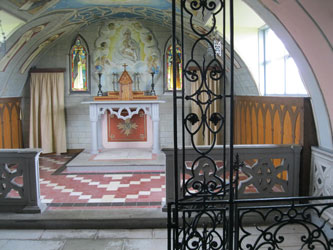
Italian Chapel
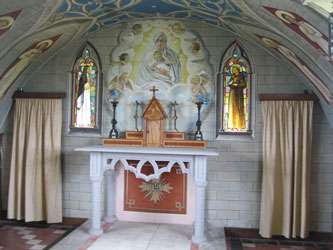 .
. 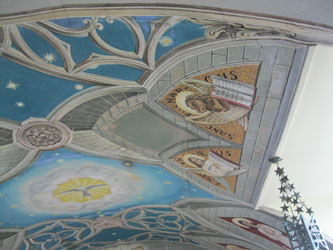 .
. 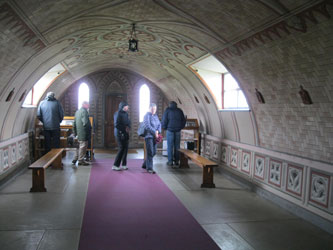
Italian Chapel
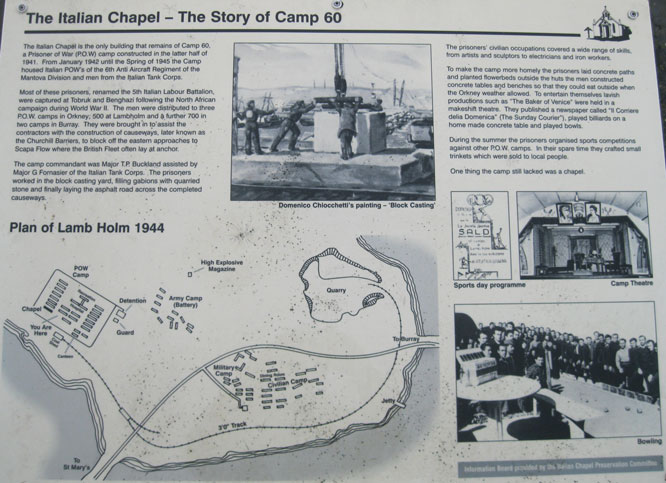
I flew from Kirkwall to Inverness, where I was hosted by Baha'is out of town at a beautiful B&B, The Old Kirk, Dyke by Forres, in a converted church.
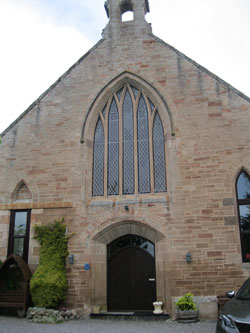
B&B at Dyke by Forres
Friday 7 June, Inverness
My friend Rolf Schmidt took me out on Moray Firth in his solar-powered boat. In the afternoon, a radio interview with Moray Firth Radio preceded the evening public event at the Beaufort Hotel, Inverness, with about 17 people on Meeting the Environmental Challenges of the 21st Century.
 .
. 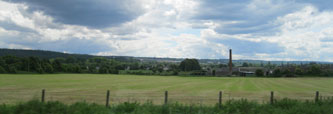 .
. 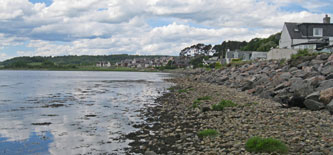
near Inverness
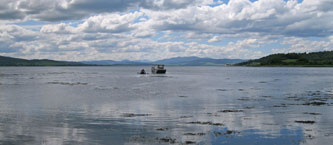 .
. 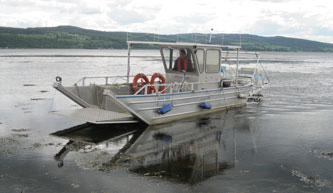 .
. 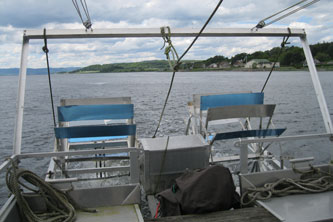
Rolf Schmidt's solar powered boat
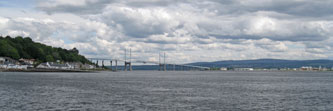 .
. 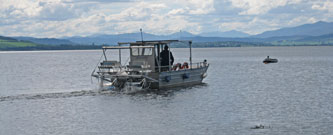 .
. 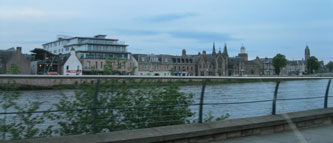
Moray Firth and bridge to Inverness
Saturday 8 June, Linlithgow, 2 days
I traveled by train from Inverness to Linlithgow via Edinburg, and visited an elderly Baha'i in the afternoon, but I was left some time to rest and prepare for my next events.
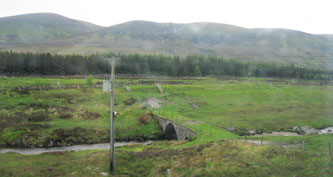 .
. 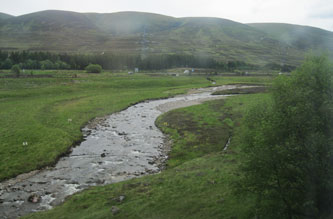 .
. 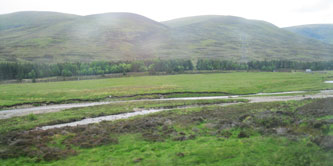
Crossing Scotland
Sunday 9 June, Linlithgow
I was taken on a walking visit to Linlithgow in the morning, along the canal, through the town and to the castle where Mary Queen of Scots was born, but forgot my camera. In the afternoon there were visits by Carolyn and Jeremy Fox who first suggested I come to Scotland, and others.
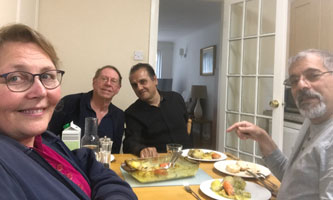
Baha'i friends in Linlithgow
Monday 10 June, Stirling-Glasgow
I took an early train to Stirling, and was taken to speak to Drymen Primary School with about fifteen 10-11 year olds on Sustainable Development Goal 14 on oceans which they were studying in class. They asked excellent questions, and then showed me the video of their award-winning ocean dance. We went on to the Interfaith Dialogue Centre in Glasgow for an informal lunch with Board Members and staff of Interfaith Scotland, including a round-table discussion on their work, Faith Communities and Climate Change – a shared responsibility. I then had an evening fireside.
Tuesday 11 June, Edinburgh
I went by train to Edinburgh, visited the Edinburgh Baha’i Centre, and then attended the Edinburgh Interfaith Association Annual General Meeting at Mayfield Salisbury Church, Edinburgh, where I was the keynote speaker on Breaking the Climate Impasse: Small Nations’ and Island Communities’ Role with an audience of about 50. My focus was on the interfaith response to climate change and stewardship of nature.
Wednesday 12 June
Wednesday morning I took the bus to the airport and departed from Edinburgh.
The general theme of my presentations was Meeting the Challenges of the 21st Century, summarized as follows:
The technologies of information, communications and transportation have reduced our world to a neighbourhood, but we are still trying to manage it with institutions and values from an earlier age. The twin environmental challenges of climate change and rapid loss of biodiversity, together with their impact on social relationships, threaten our future sustainability. Social problems including increasing inequality, migration and xenophobia are fracturing our communities and societies. Economic globalisation and our consumer lifestyle are pillaging the environment and exploiting the poor while failing to create meaningful employment. We expect responsible government at the national level but refuse to create the same responsible governance under law for global problems including peace and security. Continuing business as usual will end in catastrophe of one form or another.
A fundamental transformation is needed in our society and economy, as called for in the UN 2030 Agenda and its Sustainable Development Goals, including eliminating poverty and leaving no one behind. This can only be achieved if we make our lifestyles more sustainable, and also transform our values, resisting the superficial attractions of the materialistic consumer society and giving priority to principles of justice, equity, generosity, moderation, service and unity in diversity. The motivation for such a transformation can best be found in the moral, ethical and spiritual principles common to the great religious traditions and most recently elaborated in the Bahá'í Faith. Science tells us that time is running out and rapid change in all aspects of society and the economy is necessary to save us from environmental catastrophe. The lack of spirituality is behind the rising frustration, fear, hate, rejection and division threatening social catastrophes. We need to counter the forces of disintegration with stronger forces of integration, of solidarity and unity, starting with ourselves, our families, and in our own communities.
The actions to be taken at all levels must be informed by the best available science and grounded in spiritual principles, which include the acceptance of the oneness of humankind. Setting aside self interest and partisan disputes and striving for unity of thought and action are required in order for us to reorganise our planetary affairs and administer the world in our collective role as its trustees or stewards, moving towards a global governance which embraces national autonomy and diversity. Principles of moderation and humility together with an increased understanding of Nature will help us to be more sustainable. We must see sustainable environmental management not as a discretionary commitment that we can weigh against other competing interests, but rather as a fundamental responsibility that we must shoulder, a pre-requisite for our spiritual development as well as our physical survival” (Baha’i International Community)
I adapted this presentation depending on the audience, with additional details or stories from his experiences to illustrate a point, such as the lessons to be learned from coral reef ecosystems, and where relevant his experience as a winner of the New Shape Prize of the Global Challenges Foundation for proposals on global governance for the 21st century. In the islands i added an island dimension. The presentations usually concluded with lists of specific things that each individual could do to live more sustainably, some already available on the IEF web site.
Scotland is already a place with a strong sense of community, looking to set an example for climate responsibility. It will not be easy with an economy largely dependent on North Sea oil and a heavy reliance in agriculture on cows and sheep, both major methane emitters. Hopefully my visit has increased the awareness of the challenges ahead and the motivation to make the changes required.
Return to travel 2019 page - Return to personal home page
Last updated 11 September 2020
Photographs copyright © Arthur Lyon Dahl 2019